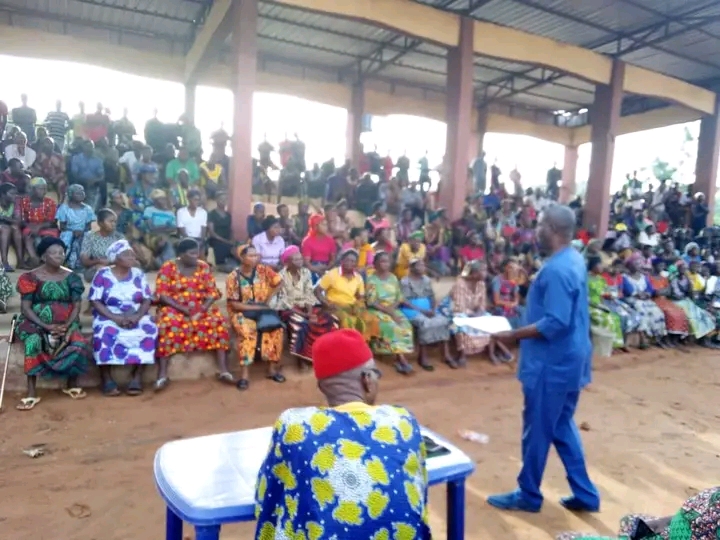In a move aimed at alleviating the high cost of living for residents, the Nibo Town Union has established fixed prices for farm labourers, masons, and carpenters. The new rates were officially announced at a town hall meeting held at the community’s Civic Centre in Eke Nibo, Awka South Local Government Area.
The meeting was attended by men, women, and youths of the community, as well as non-indigenous farmers, masons, and labourers. According to the Nibo Town Union, the new rates are as follows:
– Clearing of farmland: N3,500 per day with one meal, or N4,500 without a meal.
– Cultivating or making mounds/ridges: N5,500 per day with one meal, or N7,000 without a meal.
– Mason work: N7,000 per day.
– Mason’s assistant: N4,000 per day.
– Carpentry work: N7,000 per day.
– Cutting a head of palm fruit: N250.
Addressing the gathering, the President-General of the town, Professor Tony Nwokoye, urged residents to comply with the new regulations. He announced that the Nibo Union will deploy vigilante services and the Nibo Women Committee of Ogbuobodobo to monitor compliance every morning.
Professor Nwokoye warned that any labourer who fails to adhere to the new prices will be banned from Eke Nibo market and the Central Labourers Park. Non-compliant Nibo indigenes will face sanctions from the Nibo Town Union.
Responding to complaints from some labourers about the high cost of living in Nigeria, Professor Nwokoye acknowledged the widespread hardship but urged them to direct their grievances to the government.
The Traditional Prime Minister of the community, Chief Robins Obi-Ezeana, emphasized that Nibo, like any other community, has customs, traditions, rules, and regulations. He stated that the town hall meeting was intended to foster dialogue and harmony among residents. He reassured non-indigenes that they are welcome to stay, provided they respect the community’s regulations.
The Woman Leader of Ogbuobodobo, Mrs. Rose Okoye, and the Woman Leader of Umuenechi village, Mrs. Chinyere Enekwechi, explained that the fixed prices were necessary due to the unaffordable rates previously charged by labourers. They noted that the new prices would help reduce the cost of local produce in the market, including commodities like garri and vegetables.
Non-indigenous residents, Mr. Elijah Umeje and Mr. Sunday Bright, who have lived in Nibo for over two decades, expressed their understanding of the community’s decision but highlighted that the economic situation in the country was the reason behind the previous price hikes.
The meeting concluded with a proclamation by the women of the community, led by Mrs. Okoye, that anyone who refuses to comply with the new regulations will face consequences.
In addition to the new pricing regulations, Professor Nwokoye distributed palliatives provided by the federal government through the Anambra State government to the thirty villages in Nibo. The palliatives, consisting of bags of corn and garri, are intended to support vulnerable community members and mitigate the rising cost of living.




